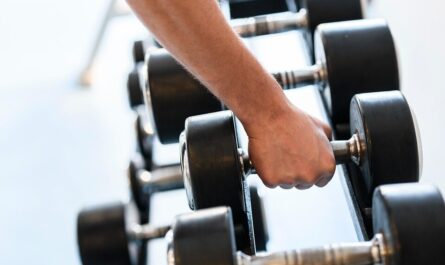In today’s world, the emphasis on fitness often comes with a sense of urgency and pressure to push one’s body to its limits. For many, this mindset is rooted in the desire to conform to unrealistic body standards or achieve a certain level of physical achievement. However, as more people embrace body positivity and self-care, there is a growing recognition that fitness is not just about intense workouts and visible transformations. Rest and recovery have become essential components of a well-rounded fitness plan, especially when this plan is centered around self-care and body positivity. In this article, we’ll explore why rest and recovery are crucial to a body-positive fitness journey and how they contribute to overall well-being, mental health, and sustainable progress.
What is Body-Positive Fitness?
Body-positive fitness emphasizes embracing all bodies and recognizing the inherent value of each individual, regardless of size, shape, or physical ability. It prioritizes the journey of health and well-being over achieving a specific aesthetic goal or conforming to societal standards of beauty. This approach celebrates movement, strength, and progress, with an emphasis on enjoyment and personal satisfaction rather than external validation or comparison.
In a body-positive fitness plan, the goal is not to achieve a particular body shape or size, but to honor and nurture the body you have. It focuses on building strength, endurance, flexibility, and overall wellness while fostering a positive relationship with your body. A critical component of this approach is self-care, which includes listening to your body’s signals, recognizing its needs, and giving it what it requires to function optimally.
Rest and recovery are essential aspects of self-care within a body-positive fitness plan. These two elements are often overlooked in traditional fitness regimens, which prioritize intensity and volume over balance. In a fitness plan that values self-care and body positivity, rest and recovery are just as important as the workouts themselves.
The Role of Rest in Fitness
Rest is not merely the absence of exercise; it is an active process that allows the body to recover, repair, and rebuild itself. When we engage in physical activity, especially strength training or high-intensity exercises, we create microtears in our muscle fibers. These tears need time to heal in order to grow stronger and more resilient. Without proper rest, the body does not have the opportunity to fully repair itself, leading to exhaustion, injury, and burnout.
Rest is also crucial for replenishing energy stores. Physical activity depletes glycogen, the body’s primary source of energy during exercise. Adequate rest allows the body to restore these energy levels, ensuring that you are prepared for your next workout or physical activity. Rest also helps to maintain hormonal balance. Intense exercise can lead to elevated levels of cortisol, the stress hormone. Over time, chronic stress can impair the body’s ability to function properly, affecting everything from immune function to mood regulation.
The importance of rest is often underestimated in a culture that celebrates constant hustle and “grind.” However, rest is essential for achieving sustainable fitness goals. A body-positive approach to fitness acknowledges the necessity of rest and honors the body’s need for recovery.
The Role of Recovery in Fitness
While rest refers to taking breaks from physical activity, recovery encompasses the entire process of allowing the body to heal and restore itself. Recovery is a multifaceted process that includes adequate sleep, nutrition, hydration, stretching, and self-care practices such as yoga, meditation, and foam rolling.
Recovery allows the body to repair the muscle tissue damaged during exercise. This process is essential for building strength and improving performance. When recovery is neglected, the body remains in a state of perpetual stress, making it harder to make progress and increasing the risk of injury.
There are different types of recovery, including active recovery and passive recovery. Active recovery involves engaging in low-intensity exercise such as walking, cycling, or swimming. This type of recovery helps to improve blood circulation, remove metabolic waste products, and reduce muscle soreness. Passive recovery, on the other hand, involves complete rest, such as taking a day off from exercise or getting a good night’s sleep. Both types of recovery are important in a body-positive fitness plan, as they help the body function optimally while reducing the risk of overtraining and burnout.
The Connection Between Rest, Recovery, and Mental Health
Rest and recovery are not just essential for physical health; they also have a significant impact on mental well-being. In a society where productivity is often equated with self-worth, rest can feel like a luxury rather than a necessity. However, taking time to rest and recover is essential for mental health, particularly in the context of a fitness plan.
Engaging in regular physical activity is known to improve mood, reduce stress, and alleviate symptoms of anxiety and depression. However, overexertion without adequate recovery can lead to mental fatigue, irritability, and burnout. When we push ourselves too hard, both physically and mentally, it can become difficult to enjoy the process of fitness. Rest and recovery give the mind the space to relax, reset, and recharge.
A body-positive fitness plan recognizes that mental health is just as important as physical health. By prioritizing rest and recovery, individuals can reduce the risk of emotional burnout, improve their overall well-being, and foster a more positive and sustainable relationship with fitness.
The Importance of Sleep in Recovery
One of the most important yet often overlooked aspects of recovery is sleep. Sleep is essential for the body to repair itself and replenish energy stores. During sleep, the body produces growth hormone, which aids in muscle repair and tissue regeneration. Lack of sleep not only impairs recovery but also increases the risk of injury, reduces performance, and affects mood.
Sleep is also crucial for cognitive function. A good night’s sleep allows the brain to consolidate memories, process emotions, and regulate mood. When sleep is neglected, it can be harder to maintain focus, motivation, and a positive mindset. For those pursuing a body-positive fitness plan, sleep is an essential part of self-care and overall wellness.
Nutrition and Hydration as Part of the Recovery Process
While rest and sleep are essential for recovery, nutrition and hydration are equally important. After a workout, the body needs fuel to replenish glycogen stores and repair muscle tissue. Consuming a balanced post-workout meal that includes carbohydrates, protein, and healthy fats helps to optimize recovery and support muscle growth.
Hydration also plays a critical role in recovery. Water helps to transport nutrients throughout the body, regulate body temperature, and remove waste products from the system. Dehydration can impair muscle function, increase the risk of injury, and hinder the body’s ability to recover.
For those with a body-positive mindset, nutrition and hydration are not about dieting or restriction but about fueling the body with the nutrients it needs to thrive. A well-rounded diet that includes plenty of whole foods, vegetables, fruits, lean proteins, and healthy fats supports the body’s ability to recover and perform at its best.
The Risks of Overtraining and the Importance of Listening to Your Body
In a culture that often emphasizes intensity and results, overtraining has become a common problem. Overtraining occurs when an individual pushes their body beyond its capacity to recover, leading to fatigue, muscle strain, and even injury. Overtraining can also lead to mental exhaustion, decreased motivation, and a negative impact on overall well-being.
A body-positive fitness plan encourages individuals to listen to their bodies and recognize when rest is needed. Instead of adhering to rigid workout schedules or forcing yourself to push through fatigue, it’s important to honor your body’s signals. Taking rest days when necessary, adjusting workout intensity, and modifying routines based on how you feel are key aspects of maintaining a sustainable and enjoyable fitness journey.
Rest and recovery are not signs of weakness; they are signs of self-awareness and respect for the body’s limits. Embracing the importance of recovery is essential for long-term success, both physically and mentally.
How to Integrate Rest and Recovery Into a Body-Positive Fitness Plan
Incorporating rest and recovery into a body-positive fitness plan doesn’t mean sacrificing progress or goals. Instead, it means building a balanced approach that honors the body’s need for recovery while still challenging it in a healthy and sustainable way.
- Rest Days: Schedule at least one or two rest days per week to give your body time to recover. On these days, focus on activities that help you relax and recharge, such as stretching, yoga, or gentle walks.
- Sleep: Prioritize sleep as part of your recovery routine. Aim for 7-9 hours of sleep each night to allow your body to fully recover and restore itself.
- Active Recovery: On days when you don’t feel like doing intense workouts, engage in light activities like walking, swimming, or gentle cycling to keep your body moving without overexertion.
- Mindful Nutrition: Focus on eating nutrient-dense foods that fuel your body and support recovery. Include a balance of carbohydrates, protein, healthy fats, and plenty of fruits and vegetables.
- Hydration: Drink plenty of water throughout the day to stay hydrated and support muscle recovery and overall well-being.
- Self-Care Practices: Incorporate self-care activities such as meditation, foam rolling, or even massage therapy to aid in muscle recovery and promote relaxation.
Conclusion
In a body-positive fitness plan that prioritizes self-care, rest and recovery are integral components of the process. These elements allow the body to heal, repair, and rebuild, ensuring sustainable progress while preventing burnout and injury. Rest is not a sign of weakness but a vital part of any fitness journey, especially one that embraces body positivity and self-care. By prioritizing rest, sleep, nutrition, hydration, and active recovery, individuals can foster a healthier and more balanced relationship with their bodies, ultimately achieving long-term fitness and well-being.



